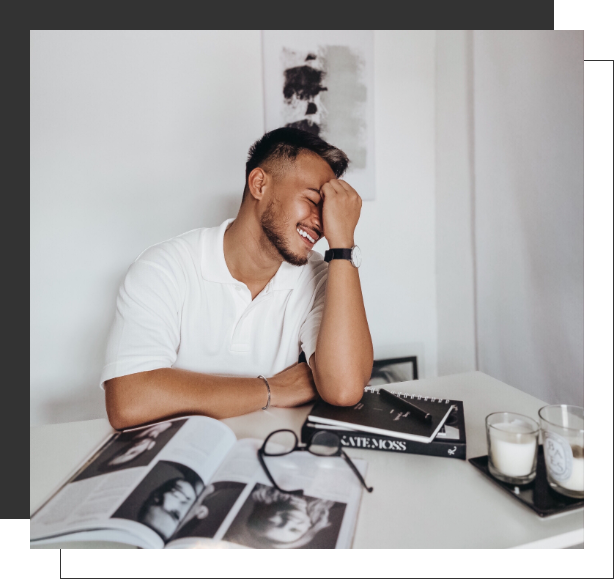Interview Tips

Interview Hints & Tips
That one dreaded question - Interview ? what do I say? How to prepare?
Everything starts with YOU...
Be Prepared
- Assess your strengths
- Be prepared to sell yourself
- Outline your skills and achievements
- Know all of the details of the Interview (Interviewer, address, company details etc.)
Focus on your strengths
Common Strengths include:
- Enthusiasm – the first rule of selling is enthusiasm! You need to be fully prepared to sell yourself within the first 3 minutes!
- Team Player
- Leadership ability
- Attention to detail – if a jobs worth doing, it’s worth doing right!
- Initiative
- Flexibility
- Ability to work independently
- Creativity

First Impressions
So, you’ve made it through the initial stages, and hopefully you’ve prepared to tackle the interviewer’s questions, now it’s time to impress!
When arriving at the interview, try to:
- Smile and be yourself.
- Remain calm and confident
- To help build rapport with the person interviewing you, or if there is more than one person conducting the interview always turn to face them full on so that your heart is in direct line with theirs. This is a very powerful technique used by many influential and highly successful businesses people.
- Shake hands reasonably firmly at the beginning and end of the interview
- Offer your hand for a firm (within reason) handshake
- Keep a high level of eye contact – this builds trust and projects confidence.
- Be polite and courteous when initiating communication with the Interviewer, remembering the importance of tone of voice
Dress Appropriately
The initial impression you give the interviewer as you enter the room could make a huge difference to your chances of getting a second interview and being offered the position.
What you wear for the interview depends on the job you are going for, but portraying a professional image, and dressing smartly is highly advised. Make sure that whatever you choose to wear you feel comfortable in, self-confidence is of great importance.

During the interview
- If offered a drink, ask for water – it will help if you buy some time
- Sit up straight – first impressions count
- Ask if they would like another copy of your CV – you will look organised, and it can then be referred to throughout the interview
- If you do not know the answer to a question, say so – do not make it up.
- Try not to repeat yourself when responding to questions and get the balance right between being too concise and long winded
- Only ask questions relevant to the role & company
- Be professional at all times
If you are still very interested in the position, make the interviewers aware that you are very interested in the role and what it is you like about it before the end of the interview.
Register with us today to find your dream job
Sample Interview Questions
Every Interview is different. It is important to recognise this when preparing for your interview. Ask yourself the question, what type of role am I being interviewed for? Why have they chosen me for interview? Will the interview be technical, soft skills related or theoretical?
Many interviewers will start the interview by asking you to tell them a little about yourself outside of work, including your hobbies and interests. Be prepared for this question as it requires preparation to give a confident and reasonable response. You can discuss your family, recent holidays and highlights, sporting occasions and hobbies or interests. Three to five minutes on this subject will feel a long time if you are unprepared. Try to avoid work when replying to this question.
It is important that you go fully prepared as some sample questions that you may be asked in an interview might include:
- Why do you think you should be considered for this job?
- What do you know about the organisation?
- Why do you want to leave your current role?
- What would be your ideal role?
- What are your strengths and weaknesses? (this one almost always gets asked)
- How do you perform under pressure?
- What did you like about your previous roles?
- How successful are you?
- How did you make a difference in your last organisation?
- What motivates you?
- Are you able to work independently?
- What have you got to contribute to this organisation?
When you are coming to the end of the interview you may be asked if there are any more questions that you would like to ask. This may be the appropriate time to ask the ‘killer question’ that could land you the job that you desire.
Therefore, you may wish to ask:
“Is there anything that I have said today or perhaps not fully explained properly which may stop me from being considered for a second interview or the position? If so the opportunity to clarify any points would be greatly appreciated.”
Always remember to be yourself, you will shine through…

What not to say in a job interview
Setting yourself apart from the crowd is vital when you are looking for that new job. This applies for all stages of the recruitment process – you want to ensure that your CV is at the top of a recruiter or hiring manager’s pile, and that your interview shows you in the best possible light. People looking to fill a role will be looking for that something special which sets the very best candidates apart. To give yourself the best opportunity, here are some very common mistakes and phrases which you should try to avoid in those all important interviews
"I don’t know"
Interviewers will be looking to stretch and challenge candidates during the course of the recruitment process. The best way of dealing with the tough questions is to do your homework. The importance of research cannot be understated – you should know about the company, and be prepared for anything you will be asked about your own CV.
Of course, if there is a question which you are not expected to know the answer to, or if you are genuinely stuck, don’t make things up or try to bluff your way through. Move back into your comfort zone, relate the question back to something you do know and take on board any new information you are given. But as I said, proper planning and preparation is essential.
"What’s the salary?"
The salary is always a tough point to discuss with a new employer, especially at the 1st interview stage. There is a time and place to bring it up, and the first interview isn’t always the right one. At the same time, you don’t want to get too far down the process and not know what the salary is. Initially you should have a good indication of the remuneration from the job description. The chances are that the interviewer themselves will ask you what sort of salary you are looking for – this gives you the opportunity to talk about it and negotiate the best deal for you.
"How many holidays do I get?"
Companies are on the look-out for people that are motivated and willing to put in the necessary effort. They want staff to be ambitious, driven self-starters, not people who are just looking for an easy life. If you want a fulfilling career and the rewards that tend to come with that, then you have to be prepared to go that extra mile. Of course, you are perfectly entitled to perks, but try to avoid talking about things like holiday entitlement straight away, because it can give off the wrong impression.
"I dislike my current company"
You never want to turn the tone of the interview negative, even if you may be having a bad experience at your current job. All this does is make you seem like somebody who is difficult to manage. If asked why you are leaving, focus more on your ambitions for the future and what excites you about the job you are applying for.
"I don’t have any questions"
I have written before about candidates needing to ask questions themselves in interviews. You want to show prospective employers how keen you are to get the role. The research you have done may have thrown up some interesting facts that you can ask about, or you may want to know about the scope for personal development. You may also wish to get some more information about your role or the working culture – either way it is important that the interview process is not one sided.
I always say you just need to believe in your capability and take opportunity when it comes!
So, go and get your new role with confidence and believe in what you are capable to achieve. Kindness always has a style!
